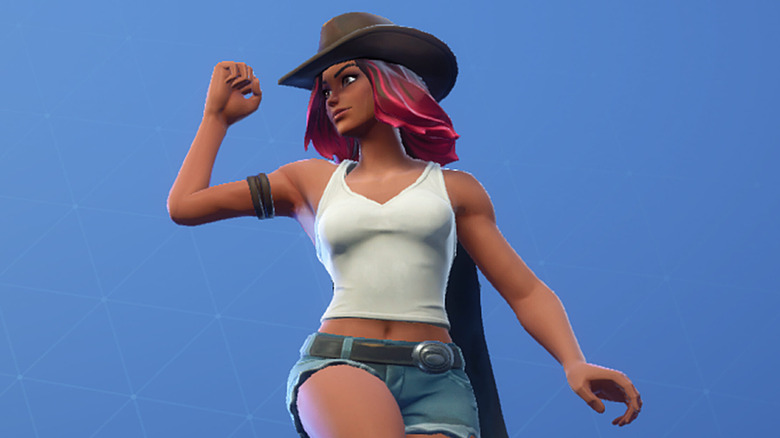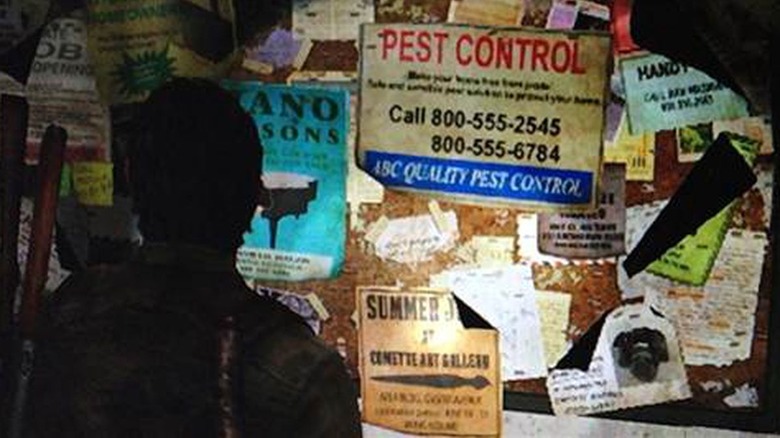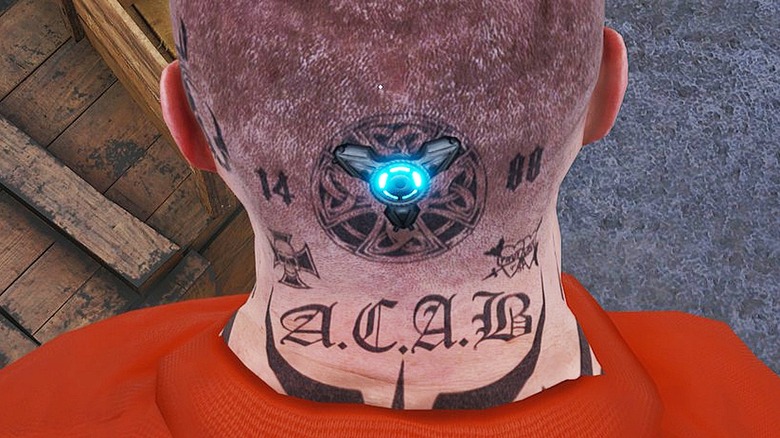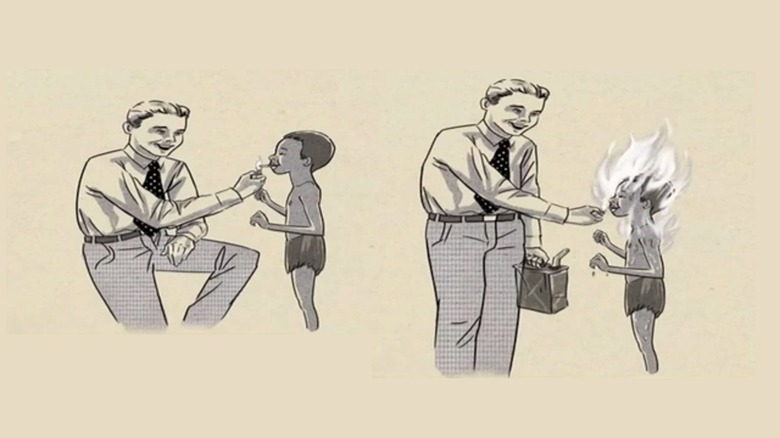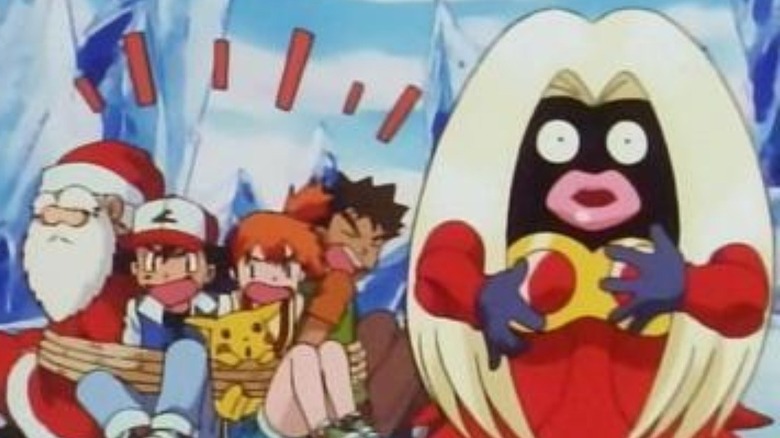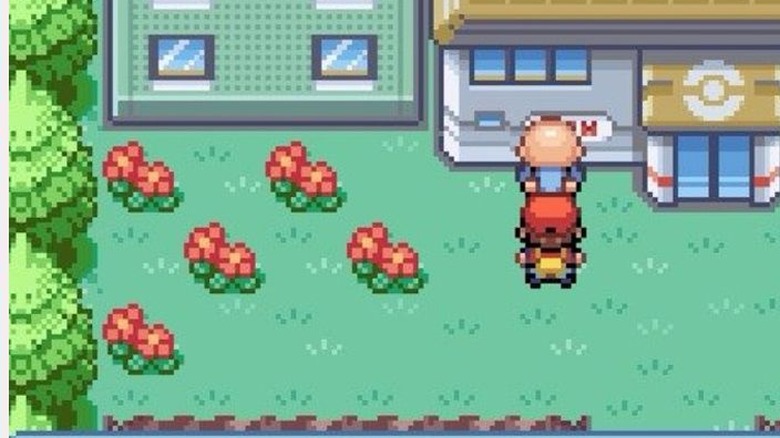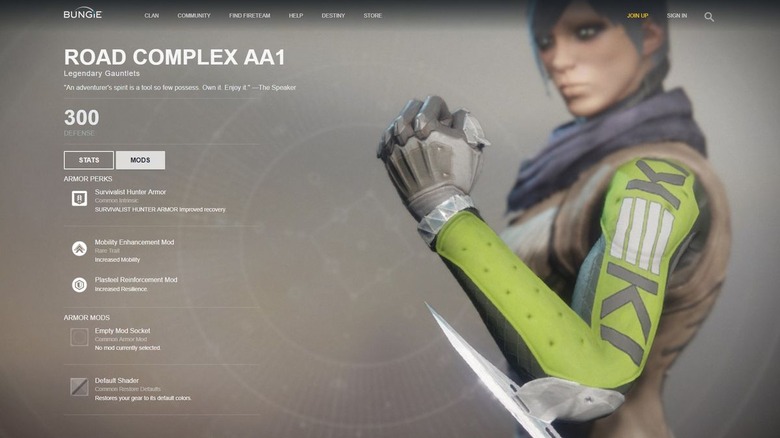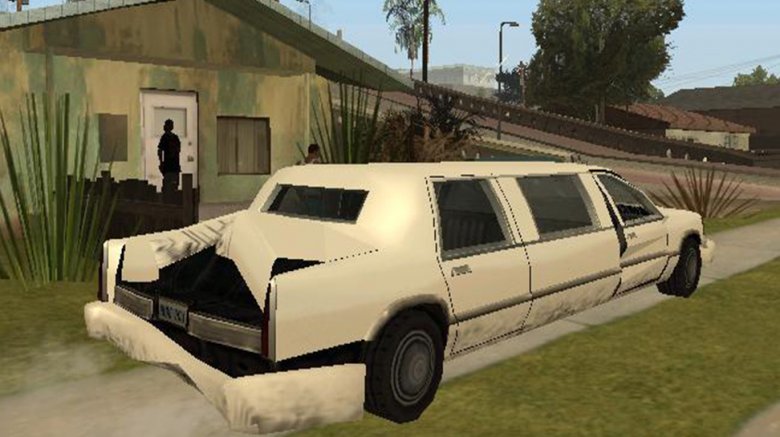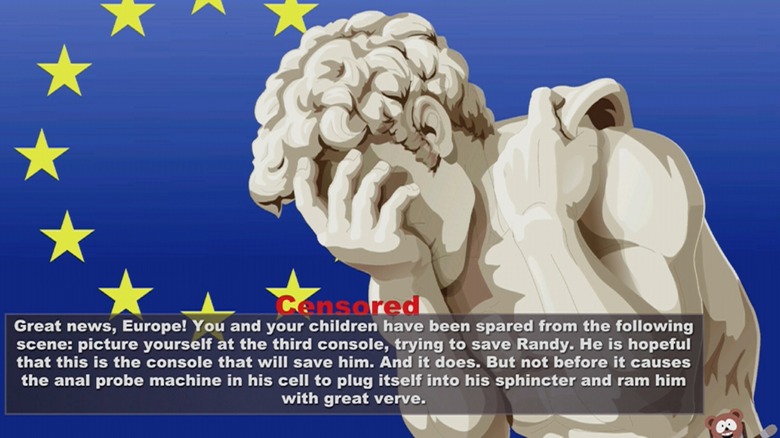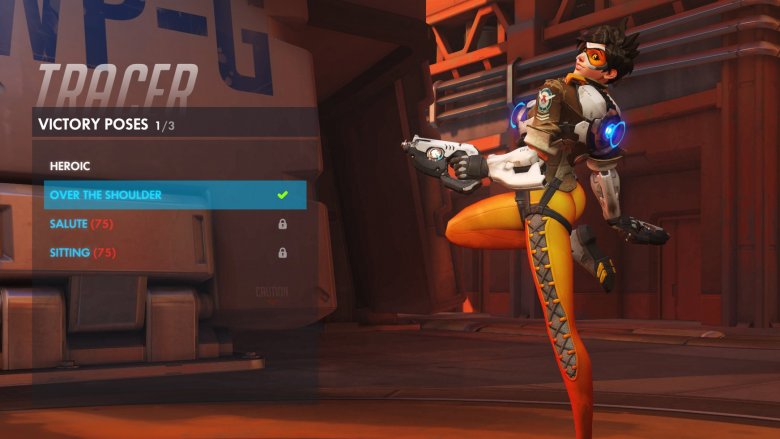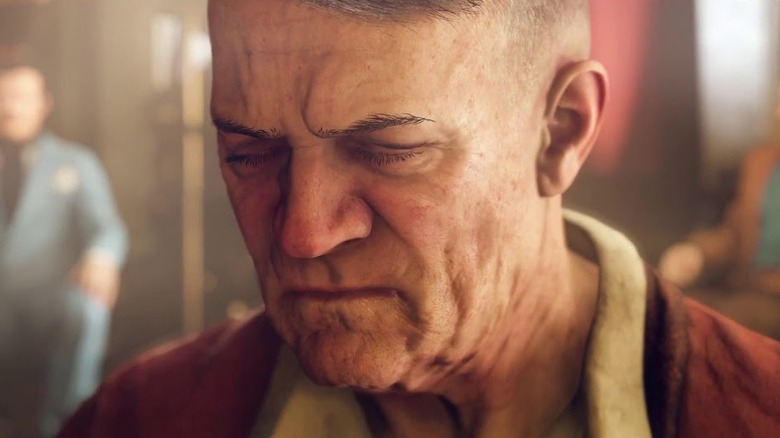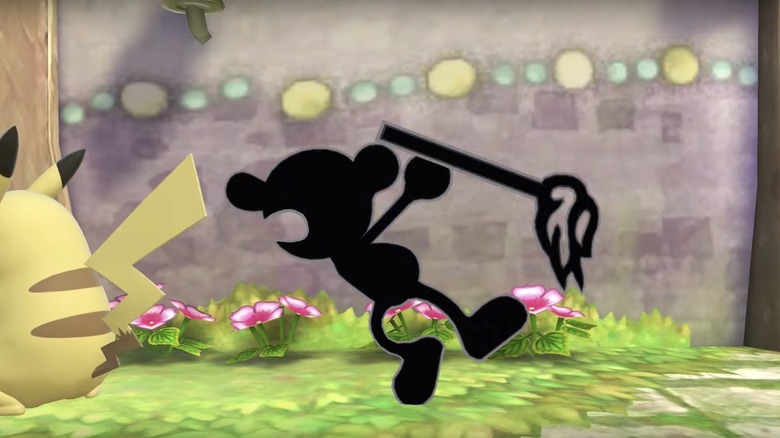Games That Removed Controversial Content After Release
Not all games are perfect after release. Developers, under the pressure of deadlines and the mounting expectations of fans, sometimes are forced to ship a game before the finishing touches have been carefully crafted. These things take time and patience, but the gaming industry waits for no man (expect Star Citizen apparently). Rushed releases can be fixed by Day One patches and further updates to make the game into what devs truly envisioned the final product to be.
But sometimes they're forced to make further edits long, long after the title's initial release date. Sometimes it's not bugs, glitches, or wonky controls that devs have to fix, but instead content that wasn't the most socially acceptable. Games have been controversial since the days of Night Trap, but even perfectly PC, largely innocuous games have had small details mar their otherwise family-friendly reputation. Thus, devs are forced to snip out the offending pixels that have caused public uproar.
An artist's mistake: phone sex lines in The Last of Us
There is a ridiculous amount of detail that goes into creating the worlds gamers play within. Unless we take a really leisurely stroll through enemy-infested areas, we'll probably never know all the individual touches artists wove into the game to make it feel real. The Last of Us' post-apocalyptic world is still filled with remnants from the time before bloodshed and zombies: furniture, stuffed animals, posters, and leaflets galore. These details make the game all the more immersive, but one such poster put Naughty Dog in some hot water.
In-game, on a bulletin board in Pittsburgh, there are the usual community calls to action like posters for piano lessons and art camp. Smack in the middle is an ad for pest control which lists two phone numbers. Last of Us creative director Neil Druckmann himself called this accidental Easter egg a mistake, because dialing those numbers connected players to a breathily erotic phone sex line.
According to Druckmann, the expectation had been that the "555" area code would invalidate the number. 555 is Hollywood's go-to for fake phone numbers because, at least until The Last of Us, it made the number a dud. Apparently 1-800 numbers don't work that way, and thus the game shipped with two sex hotlines. An update made the ad into an unreadable mess, so players aren't distracted by this break in their immersive experience. Surely, a phone sex line wouldn't still be operating in the apocalypse, right? Accuracy matters!
Embarassing and unintended: Fortnite's jiggly mistake
For all the hullabaloo that parents' like to drum up about one of the most popular games in the world, Fortnite is a fairly tame game. The game is devoid of blood and guts, the violence cartoonish in nature. As dubious as Chug Jugs look, they're not filled with drugs or alcohol. Other than its addictive nature, there's not a lot that is objectionable about the game ... until Season 6 came along. Fortnite got too sexy for kids overnight.
Players noticed that there was an added detail to the Jubilation emote that had them staring a little longer than necessary. As the Calamity skin raised her arms and danced in Jubilation, they realized that she was a little bouncier than usual. That's right, Epic Games had added in jiggle physics to her boobs. Nice. Naturally, it wasn't long until the whole of the internet had caught wind of the new, jiggly update to the game that 12-year-olds everywhere are obsessed with. In statement to IGN, Epic said that the apparent bug would be removed effective immediately. "This is unintended, embarrassing, and it was careless for us to let this ship."
Unintended is an interesting choice of words considering the fact that surely, someone had put in time and effort to create the delicate movements added to the Jubilation emote. Nevertheless, Calamity is now much more appropriate after this snafu.
Scum is scummy: Nazi symbolism removed
Scum is filled with scum. The survival game is populated by escaped criminals fighting for their, perhaps undeserved, freedom. The game isn't exactly trying to be family friendly, but one detail crossed the line for many: the inclusion of white supremacist tattoos on characters.
The Scum Supporter Pack featured a full-face skull tattoo that is admittedly pretty badass, until you take a look at the additions to the back of the player's avatar's skull. There players were shocked to find the numbers 14 and 88, references to neo-Nazi codes. One wouldn't be surprised to find such symbolism on the worst of the worst criminals, but it would feel a little weird to be playing as a white supremacist.
A community manager for developer Croteam Incubator first dismissed the outrage. "If you are offended by some textures in the game, please don't play the game. Because if we start removing things that hurt someone's feelings, it will be an empty game, with no people, no weapons, no blood, no humor, no ****ing pooping, killing others, eating human flesh, killing animals."
Publisher Devolver Digital later said to Polygon that although the aim had been to accurately represent an aspect of prison culture, the Nazi symbols would have to go. "We strongly condemn any and all use of hateful symbology in our games and agree it should have never been in the game regardless of creative intent or realism. Devolver Digital apologizes unreservedly."
A patch quickly cleaned up this misstep.
The Stanley Parable removes image of burning child
In a '50s-style PSA within indie darling The Stanley Parable, players are told that choice is the best part of being a real human being, but it can be dangerous. For example, hypothetical real human being Stephen could spend years improving the lives of children in impoverished, third-world nations. Or he could "systematically set fire to every orphan living in a thirty mile radius."
The above scenario is accompanied by a smiling Stephen first lighting a cigarette for an excited black child. Stephen is next pictured setting that child on fire. It's dark, but the whole game is pretty dark when you get down to it. Creator Davey Wreden listened to several complaints that despite the absurdist nature of the PSA, seeing a white man set a black child on fire wasn't not only not funny, but could be construed as racially charged.
In an interview with Kotaku, Wreden said he had no problem patching away this particular problem. "I'm not exactly married to the visual gag there, it doesn't make or break anything about that particular section, and we always wanted the game to be something that could be played by anyone of any age. If a person would feel less comfortable showing the game to their children then I've got no problem helping fix that!"
Even Pokemon isn't safe: Jynx was made less racially insensitive in Gold, Silver, and Crystal
Sometimes even the most beloved of games goof up and include something that we don't notice in the idyllic days of childhood. But after growing up and learning the ways of the world, we realize that there's something ... off. Wrong. Questionable. Maybe even racist. When it comes to Pokemon, Jynx made more knowledgeable adults question if her design was okay for consumption.
The controversy around Jynx started when she made her debut on a 1999 English-dubbed episode of the anime. Critics took in her black face, oversized lips, and drag-esque outfit and said that she resembled racist caricatures featured in minstrel shows of the past. Other Japanese shows like Dragonball have caught controversy for the inclusion of characters designed in the same way. Developer Game Freak took these comments into account, and upon the release of Pokemon Gold, Silver, and Crystal, Jynx has undergone a slight makeover. She now has purple skin, rather than pitch black. From Generation 3 onwards, the human-shaped Pokemon has been purple.
Rather than quelling controversy, this decision caused more. Fans to this day argue about what the designer's intention was when first creating Jynx. Were they intending to create a blackface Pokemon? Were they actually making a call back to Norse mythology? Referencing ganguro fashion? Regardless of original intent, Jynx as we know her is a purple ice queen with a pout to die for.
Pokemon Red and Blue and the pervy old man
We've previously covered some seriously non-PG features in the largely kid friendly world of Pokemon. Even though Game Freak has ten-year-olds in mind as their player base, the teenagers and adults who gotta catch 'em all come to notice some questionable content hiding alongside wild Pokemon.
The very first Pokemon games, Red and Blue, came loaded with not only a fun experience that would launch one of the world's most popular franchises, but also a lonely old pervert. The Celadon City gym is home to grass-type gym leader Erika and her girl gang. An all-female gym filled with Lasses, Beauties, and Cooltrainers, it is a beautiful sight to behold. One old man standing outside the gym, peering into the windows, isn't interested in flowers or topiary, however.
His spicy flavor text says, "Heheh! This Gym is great! It's full of women," making a clear peeping tom reference. Later FireRed and LeafGreen remakes reeducated this old letch and instead has him say the more empowering phrase, "Ha ha! This Gym is great! It's full of strong Trainers."
More white supremacist imagery, this time in Destiny 2
The internet is a weird place, to say the least. You never know when an image is going to be permanently spoiled by deplorable communities. Prolific usage by the denizens of 4chan and the alt-right is how Pepe the Frog was officially dubbed as a hate symbol. More obscure is the Kekistan banner, a symbol meant to mimic a Nazi war flag that is associated with white nationalist movements. Barring attendance to tiki torch-lit marches and logging onto 4chan, you're unlikely to encounter it. That's why players were shocked to find gauntlets in Destiny 2 that appeared to pay homage to the hate symbol.
The Road Complex AA1 gauntlets were lime green with a black pattern that closely resembled the K's of the Kekistan flag. Once Bungie became aware of the striking similarity, they were quick to assure that its inclusion was entirely unintended. Bungie tweeted, "Our deepest apologies. This does NOT represent our values, and we are working quickly to correct this. We renounce hate in all forms."
Bungie even extended a planned maintenance window in order to remove the controversial armor as soon as possible. They also stated that they would review their vetting process, but that it wasn't malicious intent, but rather innocent ignorance that was to blame for the kek inclusion. "The more contemporary, vile derivation that has been repurposed by hate groups was not surfaced through this process, and therefore, the armor was approved for ship."
Draining and upsetting: the Grand Theft Auto: San Andreas hot coffee minigame
There are plenty of controversies that Rockstar has had to contend with over the years, but perhaps the most expensive happened in the heyday of Grand Theft Auto: San Andreas. The game is hardly PG: stealing cars, shootouts with street gangs, and strolling into strip clubs isn't exactly what one would call kid friendly. But this content was covered by a Mature rating. A graphic sex minigame known as "Hot Coffee" was not, however.
Technically, the minigame was not intended to be included in the game, to the point that Rockstar refused to claim ownership of it. The minigame could only be played through mods, but the content did indeed exist on the consumer version of San Andreas that had shipped worldwide — a kind of deleted scene discoverable by the most determined of players. When Rockstar owned up to the inclusion of the minigame, they had hell to pay. And money.
The ESRB re-rated the game as Adults Only, and the Federal Trade Commission even got involved after hot coffee became something of a national scandal. Although Rockstar got away without having to pay any fines, the fact that retailers (who refuse to stock Adults Only games) had to pull the game from shelves cost the company a mighty big chunk of cash. GameStop estimated that it would lose $1 million because of "Hot Coffee." As for Rockstar, analysts have said that their loses are a might bit bigger at $50 million. Rockstar cofounder Dan Houser called this tough time "draining and upsetting." Draining being the operative word here.
Europe apparently loses in South Park: The Stick of Truth
Don't play South Park games in front of your kids. Or your parents. Or just about anyone who isn't familiar with the over-the-top ways that the ultra-raunchy, ultra-inappropriate show pushes boundaries. Nothing is sacred, and just about anything — from pedophile priests to Nazi aliens — can appear on screen. South Park: The Stick of Truth has some scenes that were so explicit that even a Mature rating (or equivalent) wasn't enough in certain territories.
Thus in places like Europe and Australia, the game has been censored. South Park co-creator Matt Stone said in an interview with The Guardian that they did not want to be sneaky with the censorship. "You'll see how ridiculous that is ... We weren't willing to change the content, but also it doesn't ruin the game –- it's like 40 seconds' worth of the whole game. As long as we could make a joke out of the fact that they made us cut this, that was fine."
The joke they made is a screen of either a lamenting Greek statue or a crying koala that is shown instead of the offending abortion and anal probing scenes. A brief description of the missing content is listed there along with the cheeky messages like, "You lose again, Europe."
Overwatch un-sexualizes Tracer's butt
Overwatch has been praised for its inclusion of a wide range of female body types, from svelte Widowmaker, to hulking Zarya, to pleasingly plump Mei. Even in the days of the closed beta, people were happily getting to know their new favorite heroes, including Tracer, who is basically the Overwatch hero. She's on the box art, serving as the face of the brand. People are instantly familiar with her spunky, quick (literally) wit and optimism.
That's why one forum poster took issue with a victory pose that put her other assets on display rather than her personality. The writer told Blizzard that they thought the pose sexualized Tracer and reduced her down to "another bland female sex symbol." They noted that Blizzard had done good so far, creating strong female characters, but that this over-the-shoulder saucy pose would undermine that work. Game director Jeff Kaplan listened, and removed the pose, swapping it for something more playful and Tracer-like that nevertheless showed off her strong glutes.
This decision stirred up some controversy over censorship and an impediment of creative liberties, but Kaplan later said that not everyone on the creative team had been happy with the original pose anyway, and that feedback was an important part of the beta process.
Wolfenstein 2: The New Colossus shaves Hitler
Even though Wolfenstein games are all about killing Nazis in the most brutal and creative ways, it is actually troublesome that they feature so many National Socialists, for Germany anyway. After the whole unpleasant business with the World War, Nazi symbolism like swastikas and Hitler references are outright banned in Germany. So how can Germans get in on all the Nazi-bashing fun of Wolfenstein?
Rather than swastikas, the flags and armbands in the German Wolfenstein 2 were replaced with a made-up triangular sigil. Even with the overt Nazi themes, this made the game playable in Germany. When it comes to the appearance of Hitler himself in one scene, writers had to carefully tip-toe around identifying the dictator. A doddering, coughing old Hitler is greeted with "mein Kanzler" (my chancellor) rather than the familiar "Heil Hitler." The German version also removes one of Hitler's most identifiable features: his moustache. While it is obvious that the angry old despot is Adolf himself, the German version refuses to say it outright.
Mr. Game and Watch's racially insensitive pose
The very first Game & Watch game on its cutting edge liquid crystal display was released in 1980. The clamshell, multi-screen design changed the future of gaming forever; Nintendo would later take inspiration from the little, toy-like consoles and create the DS. Not forgotten, the star of these old games, Mr. Game & Watch, was revived in 2001's Super Smash Bros. Melee.
Mr. Game & Watch has since been enjoyed by fighters who appreciate his simple, 2D aesthetic and attacks that call back to the '80s and '90s minigames he flailed around in, like Chef, Judge, Oil Panic, and Fire. However, the homage to the 1982 game Fire Attack in Super Smash Bros. Ultimate was a ... questionable addition at best. Fire Attack starred Mr. Game & Watch as a cowboy armed with a hammer as he tried to defend his wooden fort from being burned down by torch-bearing Native American caricatures.
After fans spotted Mr. Game & Watch sporting a feather in a racially insensitive reference in Super Smash Bros. Ultimate and expressed their hurt, Nintendo said that they would remove the caricature. In an interview with Eurogamer, a spokesperson said, "The original game on which this depiction of the character is based was released more than three decades ago and does not represent our company values today."

